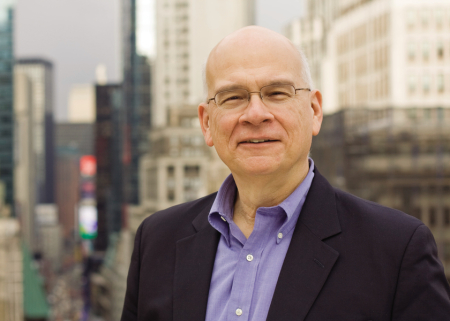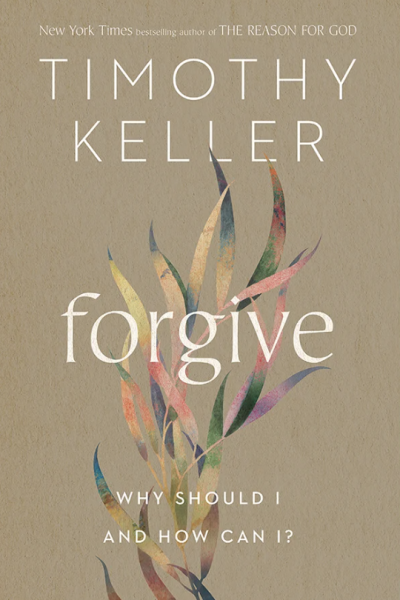Tim Keller on how cancel culture, therapeutic age has created 'crisis' around forgiveness

Tim Keller believes there is a cultural crisis going on.
In recent years, he began noticing that with the rise of the punitive movement known as "cancel culture" came a disturbing trend: Young people were becoming increasingly uncomfortable with the idea of forgiveness.
“They don’t know how to forgive, and they’re not even sure they should,” the 72-year-old pastor and New York Times bestselling author told The Christian Post. “The emphasis of young people on doing justice is important, and forgiveness seems to contradict justice. It seems like, ‘Well, I can forgive or I can pursue justice.’ That's one problem. And then secondly, we live in a culture where people don't do face-to-face stuff … they don't know how to deal with conflict or disagreement.”
“There's a cultural moment here where I think forgiveness is very important to talk about. We live in a culture that is very fragmented, polarized, there's an awful lot of anger, and people are really after each other. Forgiveness is not in the air.”
It was this concern that prompted Keller to write his latest book, Forgive: Why Should I and How Can I?The longtime pastor, whose books have sold more than 3 million copies, said forgiveness is an essential part of the Christian life; in fact, it’s at the heart of the Gospel.
“In the Lord's Prayer, the only statement that Jesus repeats is, ‘Forgive us our debts as we forgive our debtors,’” he said. “And then, at the end of the prayer, Jesus adds, ‘If you do not forgive other people, then there's no reason why God should forgive you.’ It’s very, very central to what the Bible teaches.”
In response to secular skepticism, Keller addresses the seeming contradiction between forgiveness and justice. He stresses that unless the two are pursued together, it’s impossible to enact justice.
“Instead of saying, ‘I can forgive or pursue justice,’ no, you need to forgive in order to pursue justice, because if you don't forgive all, you'll be pursuing his vengeance,” Keller said. “Your motivation will tend to be anger. Anger is more exhausting than love … as an emotion, anger spends you, love fills you up. Anger can twist you.”
“And if that's the main reason you're going to try to do justice, I think you will overreach; often, when you're talking to people that you think are doing injustice, you won't persuade them or win them over … in many cases, you'll make them worse, because they’ll feel like they’ve got to protect themself.”

Keller, the founder of Redeemer Presbyterian Church and City to City, was diagnosed with stage 4 pancreatic cancer in May 2020 and is undergoing immunotherapy. He said the treatments have kept his cancer at bay, keeping him “exactly where I was two-and-a-half years ago when I got the cancer diagnosis.”
“Most people are gone within months or a year; I'm still going strong and I'm going into two-and-a-half years. I'm very, very grateful to God,” he said.
Since his diagnosis, Keller has continued to write and teach, sharing biblical wisdom surrounding topics including race, social relationships, systemic injustice and sexuality. In Forgive, he addresses how the Church has sometimes restored abusers to positions of power — a timely topic as some denominations grapple with decades of sexual abuse in their ranks.
He quotes Rachel Denhollander, a Christian attorney who led the charge against USA Gymnastics team doctor Larry Nassar, about how the Church has historically mishandled abuse allegations or pressured victims to “forgive and forget.”
“In the '70s and '80s, there was a tendency on the part of Evangelical churches to feel like, ‘All we have to do is get people to repent and forgive and not go outside to the world; we can solve everything,’” he said. “But when it comes to actual child abuse, or sexual abuse or wife abuse, these things are against the law. And if you think, ‘We don't want to go out there, we're going to just deal with it right in here,’ then it really is very bad for victims.”
“It doesn't get rid of the necessity of forgiveness,” he added. “But we have to admit that the Evangelical churches use that as a weapon against victims, and that's another reason why it's been discredited to some degree.”
According to Keller, there are four actions that constitute real forgiveness: Naming a trespass instead of ignoring it; identifying the perpetrator as a fellow sinner; releasing the wrongdoer from liability by absorbing their debt, and finally, aiming for reconciliation.
Though he stresses reconciliation is always the goal of forgiveness, Keller does address how to truly forgive when such a result isn’t possible or safe.
He cited how, when Moses disobeyed God, God forgave him — yet prevented Moses from leading the Israelites into the Promised Land. And when David committed adultery with Bathsheba, he faced severe consequences.
“Forgiving somebody does not mean you have to trust them; I think trust comes back, gradually,” he said. “Maybe they haven't changed or maybe they haven't changed fast enough. It's never loving to make it easy for a person to sin against you.”
The same principle applies when a pastor or church leader publicly fails, Keller said.
“I would say, pastors who fall should certainly step out of ministry completely, but not just for a few weeks, or for even a few months, and then come back as if nothing had happened — and I do see that happening. I think you need to acknowledge what happened and say, ‘I can never go back and act as if that never happened because I'm calling people to come and trust me when I've really done something quite wrong, a real breach of covenant, a real breach of trust.’
“They probably shouldn't be the main preacher … especially if there's been a sexual misconduct of some kind, or financial misconduct of some kind," he added. “Essentially, I would say forgiveness does not mean a complete restoration to exactly where they were before. In fact, that probably generally shouldn't be.”
Keller examines common obstacles to forgiveness, including the rise of social media and how today’s therapeutic age focuses on self-interest instead of the true reason Christians are called to forgive: For the glorification of God and the common good.
“If the main purpose of forgiveness is, ‘how do I get happy?’ you're not doing all the forgiveness you actually should do,” he said. “I think what forgiveness is supposed to do is not only give you inner peace but make you an agent of reconciliation in the world.”
Christian forgiveness understands that Christ has forgiven, while the therapeutic model is “all about getting your mind off of the past,” Keller said, adding: “We're not trying to reconcile with anybody, and we're not drawing on God. We're all about making ourselves feel better.”
In an age where forgiveness is increasingly unpopular, Keller urged Christians to regularly take inventory of their own hearts and repent of their sin on a regular basis. A good repenter, he said, is able to extend forgiveness and love instead of harboring bitterness.
“Basically, what prepares you to forgive other people, is you going and getting forgiveness from God and weeping and crying and thanking Him for it, and realizing that only because of what Jesus has done is He able to give you this incredible mercy,” the pastor said.
“Then, if you are in a position where you have to forgive people, it won't be hard — or at least, it won't be as hard.”
Forgive: Why Should I and How Can I? is now available.
Leah M. Klett is a reporter for The Christian Post. She can be reached at: leah.klett@christianpost.com





















